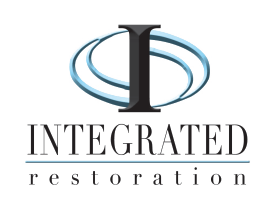Commercial Mold Remediation in Cleveland: Protecting Businesses from Hidden Mold Issues
Mold is more than just an eyesore—it’s a serious risk to businesses in Cleveland, especially as moisture levels rise after winter thaws. From offices and warehouses to retail spaces and multi-family properties, hidden mold can threaten air quality, damage structures, and even lead to costly downtime.
If you own or manage a commercial property, now is the time to take action. In this guide, we’ll explore why mold is a growing issue, how to identify risks, and what professional remediation can do to keep your business safe and operational.
Why Mold is a Serious Concern for Cleveland Businesses
Cleveland’s climate, with its harsh winters and humid summers, creates prime conditions for mold growth. As snow and ice thaw, excess moisture can seep into buildings, leading to unseen mold infestations.
Health & Compliance Risks
Mold exposure isn’t just a maintenance issue—it’s a health and legal risk. The Occupational Safety and Health Administration (OSHA) and the Environmental Protection Agency (EPA) have strict guidelines on indoor air quality. Businesses that fail to address mold may face:
Employee Health Complaints: Mold spores cause allergies, respiratory problems, and chronic illnesses.
OSHA Violations & Fines: Poor air quality due to mold can lead to regulatory penalties.
Tenant & Customer Complaints: A moldy environment can result in negative reviews, legal claims, and lost business.
How Mold Impacts Different Business Sectors
Different types of businesses are uniquely vulnerable:
Restaurants & Cafes: Excess humidity in kitchens and refrigeration areas leads to rapid mold growth.
Warehouses & Storage Facilities: Poor ventilation can cause hidden mold behind inventory.
Medical & Dental Offices: Indoor air quality regulations require strict mold control measures.
Office Buildings: HVAC systems can spread mold throughout an entire workspace, affecting employee productivity.
By recognizing these risks early, businesses can prevent costly damages and operational downtime.
Signs of Mold in Commercial Properties
Mold often hides behind walls, in ceilings, or under flooring, making early detection difficult. Watch for these warning signs:
Musty Odors: A damp, mildew-like smell is a strong indicator of hidden mold.
Visible Growth: Black, green, or white patches on walls, ceilings, or furniture.
Increased Allergies or Respiratory Issues: Employees experiencing unexplained coughing, sneezing, or headaches.
Peeling Paint or Warped Walls: Moisture damage can cause surfaces to bubble or deteriorate.
Recent Water Damage: If your building has had leaks, flooding, or high humidity, mold could be present.
If you notice these signs, a professional inspection is the best way to assess the extent of the issue and take action before the problem worsens.
How Commercial Mold Remediation Works
Professional mold remediation is essential for keeping businesses safe and compliant. The process typically involves:
Inspection & Assessment: Experts use moisture meters and air quality testing to locate hidden mold.
Containment: Sealing off affected areas to prevent mold spores from spreading.
Air Filtration: High-efficiency particulate air (HEPA) filters remove airborne mold spores.
Mold Removal: Specialized cleaning solutions, antimicrobial treatments, and HEPA vacuums eliminate mold.
Demolition: To properly remove mold at the source, demolition provides the highest level of certainty all traces are removed.
Repairs & Prevention: Addressing the root cause, such as fixing leaks, improving ventilation, and using dehumidifiers.
Mold Prevention Strategies for Businesses
Once remediation is complete, it’s crucial to prevent mold from returning. Here’s a seasonal checklist to keep your commercial property mold-free:
Winter – Inspect for ice dams and leaks caused by freeze-thaw cycles.
Spring – Address basement moisture from melting snow and spring rains.
Summer – Monitor humidity levels and use dehumidifiers in problem areas.
Fall – Perform HVAC maintenance before cold weather increases condensation risks.
By investing in professional remediation, businesses can prevent mold from recurring and protect employees, tenants, and customers.
FAQs About Commercial Mold Remediation
-
It depends on the severity, but most projects take a few days to a couple of weeks.
-
Yes! Mold spores spread through HVAC systems, causing allergies, respiratory problems, and unpleasant odors.
-
Policies vary, but many cover mold caused by sudden and accidental water damage. It’s best to check with your provider.
-
Regular HVAC maintenance, dehumidifiers, and leak inspections help prevent mold from returning.
-
It depends on the extent of contamination. Some businesses remain open with proper containment, while others may need temporary closure for safety.

